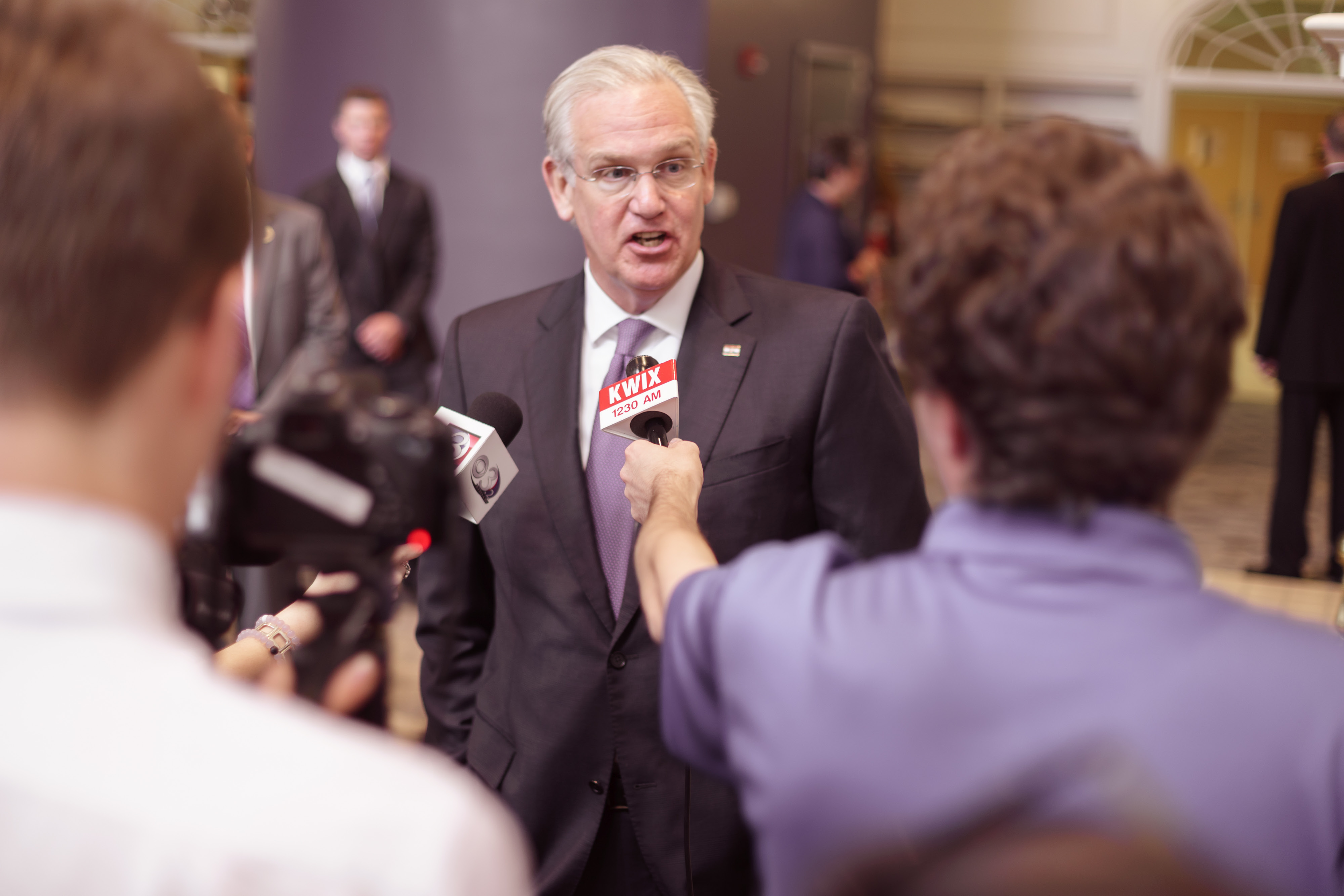

As the nation shifts its eyes toward the presidential possibilities of Vice President Joe Biden, Missourians might notice a similar position is up for grabs during 2016. The lieutenant governor’s race in Missouri is beginning to heat up, yet its magnitude has fallen flat compared to other races. Given the significance of the office of lieutenant governor, should the lieutenant governor be on the same ticket as the governor?
Of 43 states with a lieutenant governor, Missouri is one of only 18 others where the position of lieutenant governor has its own place on the ballot. The remaining 25 mimic the national ticket, where the president chooses a running mate and the two are voted into office simultaneously, from the same party. However, Missouri can have a governor and lieutenant governor of competing parties.
The partisan divide, as experienced by half of Missouri’s governors since 1973, arguably diminishes the power of the lieutenant governor and the governor. Working in tandem rather than in opposition would strengthen the offices that lead the state in several respects, such as legislative relations and community engagement.
Similar to the role Biden fills for President Barack Obama, lieutenant governors frequently have tighter relations with the legislative branch, and can improve communication and propel progress. Immediately prior to becoming the current lieutenant governor, Republican Peter Kinder served in the State Senate as president pro tempore. This is not an unusual instance, as the last five lieutenant governors all served in the Missouri Legislature prior to becoming lieutenant governors.
In contrast, Missouri’s last 12 governors held statewide positions prior to gubernatorial election. This time gap since their service in the Missouri General Assembly means legislative relations could have eroded — with the current term limits, the second term of a statewide officer will conclude with the election of an almost entirely new General Assembly. After eight years, the only remaining senators are those who were elected during special elections.
When a lieutenant governor is working in cooperation with the governor, the communication from the executive office can be improved dramatically. It is no secret that Democratic Gov. Jay Nixon’s relationship with the legislative branch has been predominantly hands-off. If a lieutenant governor of the same party were there to mend ties, such a disconnect might not be present.
Furthermore, the position of the lieutenant governor could be more complementary if elected on the same ticket. Missouri features conflicting environments — the urban powerhouses of Kansas City and St. Louis versus the rolling corn and soybean fields of rural areas. A governor with an urban upbringing could be complemented by a lieutenant governor with a rural upbringing, or a governor with conservation experience could be complemented by a right hand with a law degree.
This could not only improve understanding of the executive office but also better its ability to serve the people of Missouri. Instead, Nixon and Kinder’s relationship is nearly severed, as evidenced by the night of the failed indictment of Officer Darren Wilson. While Nixon could not be reached for comment, Kinder opted to express his outrage about the verdict on Fox News. As the eyes of the nation focused on Missouri, the government’s inability to communicate effectively was apparent immediately.
A governor and lieutenant governor elected on the same ticket would improve the unity, effectiveness and abilities of the executive branch. After all, Missourians voted for the governor to lead the state, and a lieutenant governor of the opposite party only acts as an obstacle.
